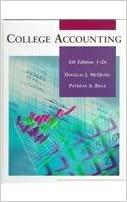Question
Hi teacher, This is the solution to a question(I have the solution but I do not know why that is the case), however, I still

Hi teacher,
This is the solution to a question(I have the solution but I do not know why that is the case), however, I still do not understand, so please answer the question I asked following, instead of the question in the picture, and please give me a detailed explanation, then I'll thumb you up. Thanks
My question: Can you please tell me why the prepayment should not be translated using the closing rate? Isn't that an asset so obviously it should be translated using the closing rate(as the functional currency is different between the parent and the subsidiary, we use the current rate method, and under this method, we use the closing rate to translate the asset), so is why my understanding not correct?Aand why should we choose D here?
Question 2 1/1 pts Cable Ltd, an Australian parent entity acquired all the voting shares in Port Ltd, a foreign subsidiary that is based in New Zealand in 1 July 2016. Port Ltd prepares its local single entity financial statements in New Zealand dollars and its functional currency is the Australian dollar. The presentation and functional currency of Cable Ltd Group is the Australian dollar. Which of the following items in Port Ltd's financial statements is NOT translated using the closing rate? a) Closing balance in cash of NZ$289,000 shown in the Cash Flow Statement. b) NZ$124,000 tax paid to the tax office on 30 June 2017 shown in the Cash Flow Statement. C) A NZ$50,000 trade receivables from a credit sale on 15 May 2017 shown in the Balance Sheet. d) A NZ$100,000 government bond that matures on 31 December 2025 shown in the Balance Sheet.. e) A $12,000 prepayment on an insurance policy made on 18 June 2017 shown in the Balance Sheet. Well doneStep by Step Solution
There are 3 Steps involved in it
Step: 1

Get Instant Access to Expert-Tailored Solutions
See step-by-step solutions with expert insights and AI powered tools for academic success
Step: 2

Step: 3

Ace Your Homework with AI
Get the answers you need in no time with our AI-driven, step-by-step assistance
Get Started


